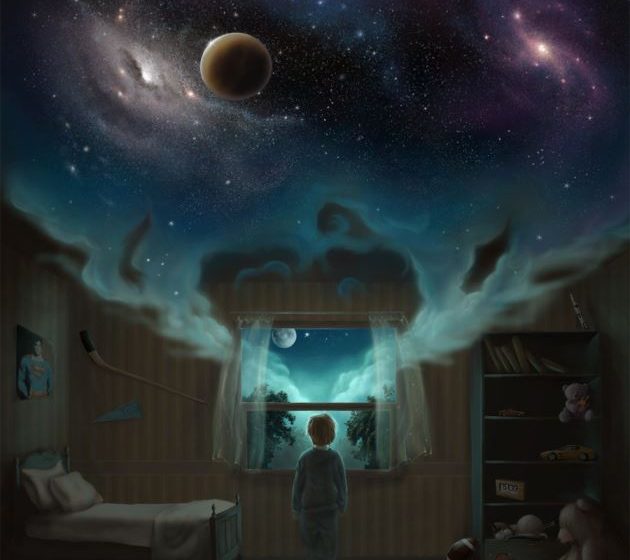Mysterious World of Dreams

As a child we always dreamt of becoming something, as an adult we are still dreaming. The happenings in our surroundings, the images that we see, the people that we meet, the situation we are into are often the factors that determine our dreams .It all begins with an idea or a thought, the thought of living in the world of unachieved desires, the world where we gratify our needs and wants. Becoming someone or possessing something that we always wanted to accomplish. We can dance, sing, run, fall, achieve, fail, live, die, steal, borrow, and give, the list can go on and on like a no limit table in a Vegas casino. The only thing that we can’t do in a dream is wake up.
Dream is a series of thoughts, images and sensations occurring in a person’s mind during sleep. A wife can guess whether her husband is dreaming or no because as per a study we cannot snore and dream at the same time. A recent survey conducted on dreams suggests that an average person has about 1,460 dreams per year, with such plethora of dreams human beings pay roughly six years of their life dreaming.
The study of dreams is known as oneirology and every year numerous scientific organizations and research groups’ conducts studies to understand the complexities of the dream world. Apart from the scientific approach dreams have vast significance in different cultures and civilizations. Egyptian pharaohs were considered children of Ra (Egyptian sun god) and thus their dreams were seen as being divine. The Ashanti’s (a West African group) take dreams so seriously that they would allow the husband to take legal action against another man if that man had an erotic dream about his wife. Interestingly the Iroquois have an annual dream sharing festival in which they act out their dreams.
Dreams differ from person to person, from man to woman and from humans to animals. Yes animals too can dream. In case of humans every human being dreams, including the blind. People who are born blind do not see any images but have dreams involving their other senses of sound, touch and emotion. Men and women tend to dream differently, around 70% of characters in a man’s dream are other men whereas a woman’s dream contains almost equal number of men and women. Women have less aggressive emotions in their dream than men.
Like a signal post where red, yellow and green signify stop, slowdown and go, dreams too have indicators which are almost universal. Dreams of losing a teeth signifies fear of helplessness, cakes and choclates in a dream can signify the time to rejoice and celebrate, standing on a cliff in a dream can represent that one has a broad view of something or that the dreamer feels that he/she is living on edge or is afraid of failure. Appearance of vampires, ghosts represents our general fears and anxieties. Falling dreams are often accompanied by muscle spasms called myoclonic jerks.
We dream when we are asleep, scientists and psychologists believe that when we are in REM (Rapid Eye Movement) sleep we dream. It is argued that smart people sleep late. Individuals with high IQ (Intelligence quotient) are often nocturnal and prefer to stay up and work till late hours. Dr. Kanazawa explains his theory stating that the discovery of electricity has made nighttime activities a possibility. Since electricity wasn’t able to be harnessed during the previous 10,000 years, we can now use our normal intelligence to overcome the need to sleep early; therefore, people who sleep late possess more intelligence. People who prefer go to bed early, and who are early risers demonstrate “morningness”, whereas those whose sleep patterns are shifted later demonstrate “eveningness”.
Researchers say eveningness tends to be a characteristic of those with higher IQs. Morningness or eveningness are often genetically based. Although there are many health disorders that are associated with sleeping late and being nocturnal. Obesity, high risk for heart diseases are some of the examples also staying awake late hours or unable to sleep are symptoms of depression.
Do dreams come into reality or is our reality depicted in our dreams in another questioned to be answered, till we find answers for that keep dreaming.







